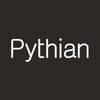51 New Relic One Jobs
Senior Machine Learning Engineer
New Relic One
posted 5d ago
Job Role Insights
Flexible timing
Key skills for the job
Job Description
As a crucial member of our team, youll play a pivotal role across the entire machine learning lifecycle, contributing to our conversational AI bots, RAG system and traditional ML problem solving for our observability platform.
Your tasks will encompass both operational and engineering aspects, including building production-ready inference pipelines, deploying and versioning models, and implementing continuous validation processes.
On the LLM side youll fine-tune generative AI models, design agentic language chains, and prototype recommender system experiments.
What youll do
In this role, youll have the opportunity to contribute significantly to our machine learning initiatives, shaping the future of AI-driven solutions in various domains. If youre passionate about pushing the boundaries of whats possible in machine learning and ready to take on diverse challenges, we encourage you to apply and join us in our journey towards innovation.
This role requires
- Proficiency in software engineering design practices.
- Experience working with transformer models and text embeddings.
- Proven track record of deploying and managing ML models in production environments.
- Familiarity with common ML/NLP libraries such as PyTorch, Tensorflow, HuggingFace Transformers, and SpaCy.
- 5+ years of developing production-grade applications in Python.
- Proficiency in Kubernetes and containers.
- Familiarity with concepts/libraries such as sklearn, kubeflow, argo, and seldon.
- Expertise in Python, C++, Kotlin, or similar programming languages.
- Experience designing, developing, and testing scalable distributed systems.
- Familiarity with message broker systems (e.g., Kafka, RabbitMQ).
- Knowledge of application instrumentation and monitoring practices.
- Experience with ML workflow management, like AirFlow, Sagemaker, etc.
- Fine-tuning generative AI models to enhance performance.
- Designing AI Agents for conversational AI applications.
- Experimenting with new techniques to develop models for observability use cases
- Building and maintaining inference pipelines for efficient model deployment.
- Managing deployment and model versioning pipelines for seamless updates.
- Developing tooling to continuously validate models in production environments.
Employment Type: Full Time, Permanent
Read full job description What people at New Relic One are saying
What New Relic One employees are saying about work life
based on 3 employees
Flexible timing
Monday to Friday
No travel
Similar Jobs for you
Share an Interview





























